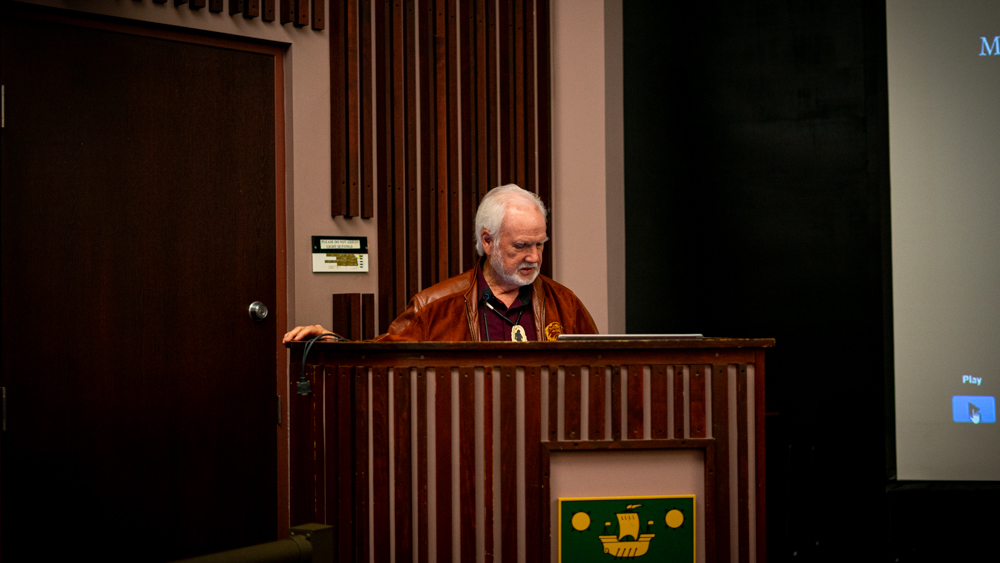St. Thomas University showcased the screening of You Can Call Me Roger on Sept. 28 to illuminate a history of division and a journey towards understanding, healing and reconciliation.
“This film is a story of hope,” said Tom Mann, executive director of the film.
You Can Call Me Roger, is a documentary that depicts the life of retired Assembly of First Nations Chief Roger Augustine and his near-impossible claim to 45 years in leadership.
Mann said the film is based on the history of over 150 years of imposed differences between people that were labelled by superiority or inferiority.
“The film is intended to illuminate and improve Canadians’ understanding beyond the narrow focus that our education and media portrays,” he said.
Mann said it was emotionally impactful to see the absolute “respect, compassion and admiration” everyone has for Augustine.
“Chief Roger’s history as leader plays an example where progress – true progress – has been made, despite guilt, sympathy, and dismissal that remain to block perfectly achievable resolutions,” he said.
Mann said the people they reached out to be a part of the film were”very supportive, accommodating and available to participate in the film.”

Jenna Augustine, a member of the St. Thomas University’s Student Reconciliation Committee and granddaughter of Chief Augustine, proposed the screening of this film as one of the activities for Truth and Reconciliation Day.
She said she chose the film, not only because of her relationship with the main protagonist of the story, but also because her grandfather has always been “an inspiration to so many people.”
She said the film shows the hardships Chief Augustine experienced being a survivor of residential schools.
Augustine said at the screening of the film she was looking forward to opening up a safe space, where students and the community can learn about history. Augustine added she thought it was a “good step in the right direction.”
“That really resonated for me that we can come together as students and work to grow and learn together,” she said.
In 2022, You Can Call Me Roger won the award for Best Documentary Feature at the Silver Wave Film Festival in Fredericton.
Mann said the film is made for a broader distribution, making it possible for Canadians and international viewers to watch it.
“The film is a vehicle for understanding the truth, healing and reconciliation,” said Mann. “This is necessary to advance the relationships between Aboriginal people and Canada.”

